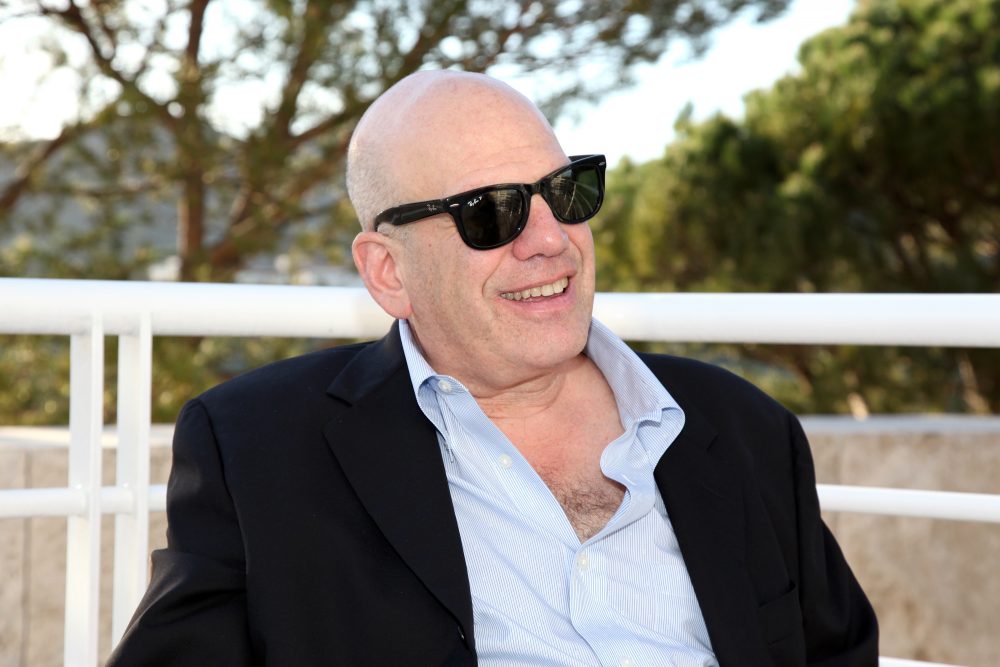
Photo by Aaron Salcido.
David Simon is an author, journalist, television writer, and producer, known for such acclaimed TV series as Treme and The Wire, as well as the 1991 book Homicide: A Year on the Killing Streets about his experiences as a Baltimore Sun reporter. Before taking part in a Zócalo/Getty “Open Art” panel discussion at the Getty Center in Los Angeles to consider the question, “Does Art Capture Reality Better Than the News?” he chatted in the Zócalo green room about film sets vs. newsrooms, rooting for Baltimore sports teams, and being hit in the head by a flying book.
Was there a teacher who especially influenced you, maybe even changed your life?
I was an obnoxious high school senior. I was editing the high school paper, and I was sort of an autodidact who had read in a scattered, sort of stupid way. I’d read everything by Hunter Thompson—can you just see the obnoxiousness dripping off of me? I had Bob Emler for English, and I’d fall asleep when he taught the course curriculum. But he’d pull me out after class, and we’d talk about writing, on my terms, which were limited. He was just trying to reach me. I remember him throwing a paperback copy of Brave New World at my head because I fell asleep in his class.
What are you reading right now, by the way?
I’m re-reading George Orwell’s Homage to Catalonia. My reading tends to follow what I need to get done for projects, and I’m doing a project on the Abraham Lincoln Brigade of the Spanish Civil War. I’m re-reading Philip Roth’s The Plot Against America, it would seem because of Trump, but actually I’m engaged in some early discussions about trying to do that for a mini-series. And I just got done reading a bunch of books about the Times Square demimonde, for The Deuce, an HBO series about the rise of the porn industry in the 1970s.
Which superpower would you most like to have?
I would invent a new and more powerful sarcasm that would encompass this moment in America. It seems as if even the harshest, most sardonic, most embittered, most cynical sarcasm is helpless in this moment. I don’t know how you outrage people, in this post-fact moment where everything is just purchased. And journalism has become remarkably ineffectual.
Although some journalism is going stronger than ever, because of the moment we’re in.
If you’re in a newsroom right now, the existential crisis you were having five years ago—it’s solved. Maybe we still haven’t figured out the revenue stream, but you know why you’re getting up every day.
Do you miss daily newspaper journalism?
Every day. I miss the reporting. The greatest thing about the newsroom: You went in, and you said what you actually thought. It’s amazing how many people have jobs where they’re not allowed to do that. I really missed that until I understood the camaraderie of the film set, which in some ways has the same demeanor. But nothing beats the fun, the scavenger hunt, of reporting.
What do you do to decompress?
I sit around the house and get angry at current events. I have a young daughter, and I engage with her, and I have a son who’s just out of college. I root for the Orioles, I root for the Ravens. I check Chowhound or try to figure out whatever food truck I’m missing that everyone else is getting. I do all the same stupid [stuff] everyone else does.
Best piece of advice you ever got?
When you’re a reporter, there are no stupid questions. As long as you keep the guy talking, you’re learning things. The kid in The Corner, DeAndre McCullough, one time he said to me, “You know why I decided to talk to you?” I said, “No, why?” He said, “You just looked so [expletive] stupid, standing there on Vine Street, lumpy old white man. I just felt sorry for you.” That was good advice.
Who’s your favorite Rolling Stone?
Absolutely, Keith. I mean, Charlie Watts is number two. But Keith is the Rolling Stones. I played bad bar-band guitar. If you love riffs, he’s Mr. Riff.
Where in the world could you imagine living?
I split time between Baltimore and New Orleans, and I’m in New York a lot because that’s where I do my editing. I’m sort of a city mouse: It’s not like I’m ever going to do the country or the shore. I spent some time recently in Barcelona, and I’ve come to love it. I was very comfortable with Galway, in the west of Ireland. But I wanted to be in Galway. I didn’t want sheep; I wanted a pub down the street.



